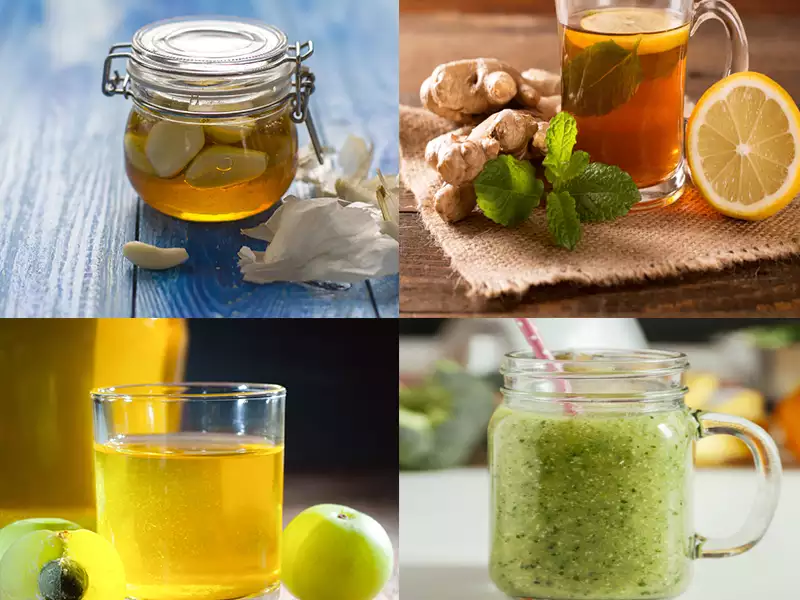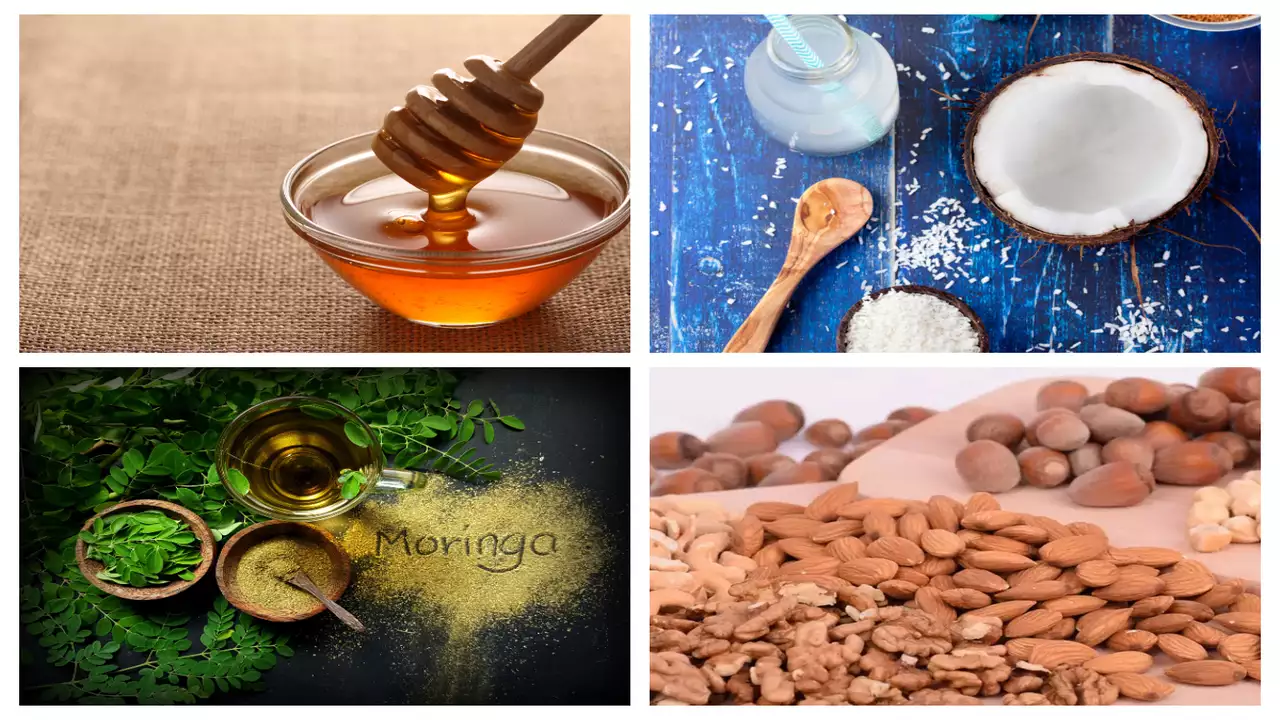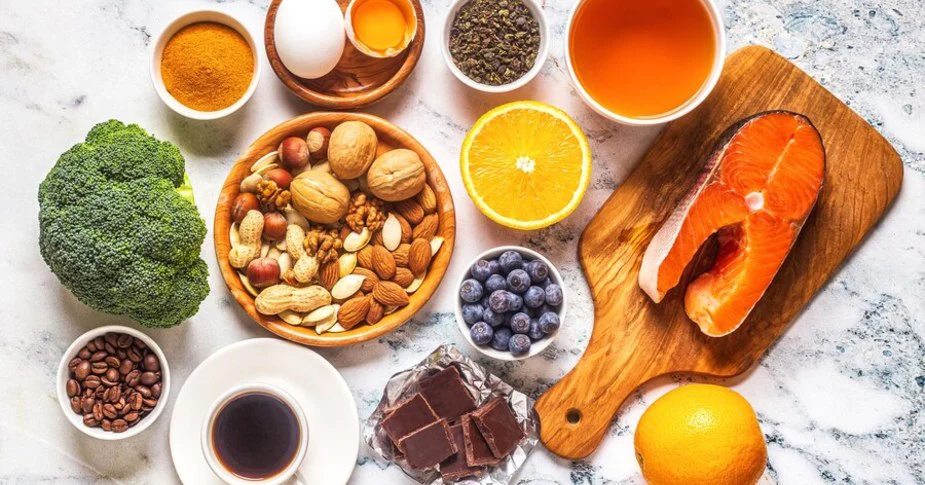Winter is a time when our immune systems are put to the test. With the cold weather, we are more susceptible to illnesses such as the flu and the common cold. To combat this, it is important to eat a healthy and balanced diet that includes foods that boost our immune system. Wellhealthorganic.com provides helpful tips on how to increase immunity by including winter foods in your diet.
According to wellhealthorganic.com, winter foods that can help boost immunity include fruits and vegetables such as citrus fruits, kiwi, spinach, and broccoli. These foods are high in vitamins and antioxidants that can help protect the body from harmful bacteria and viruses. Additionally, incorporating probiotics such as yogurt and kefir into your diet can help improve gut health and boost overall immunity.
It is important to note that while incorporating winter foods into your diet can help boost immunity, it is not a guarantee against illness. Other factors such as getting enough sleep, exercising regularly, and reducing stress levels also play a role in maintaining a healthy immune system. By following the tips provided by wellhealthorganic.com and maintaining a healthy lifestyle, individuals can improve their chances of staying healthy during the winter months.
Immunity-Boosting Winter Foods
Winter is the season when people are more susceptible to colds, flu, and other illnesses. One way to prevent these illnesses is by eating immune-boosting foods. Here are some of the best winter foods for boosting immunity:
Citrus Fruits
Citrus fruits are rich in vitamin C, which is essential for a healthy immune system. They also contain antioxidants that can help protect against infection. Some of the best citrus fruits to include in your diet during the winter months are oranges, grapefruits, lemons, and limes.
Garlic
Garlic is a natural antibiotic that can help fight off infections. It also contains compounds that can boost the immune system. Eating garlic regularly during the winter can help keep you healthy.
Ginger
Ginger is another immune-boosting food that can help fight off infections. It has anti-inflammatory properties that can help reduce inflammation in the body, which can lead to a stronger immune system.
Green Leafy Vegetables
Green leafy vegetables like kale, spinach, and collard greens are packed with vitamins and minerals that can help boost the immune system. They are also rich in antioxidants that can help protect against infection.
Mushrooms
Mushrooms are a good source of vitamin D, which is essential for a healthy immune system. They also contain compounds that can help stimulate the immune system. Some of the best mushrooms to include in your diet during the winter months are shiitake, maitake, and reishi.
Yogurt
Yogurt is a good source of probiotics, which are beneficial bacteria that can help boost the immune system. It also contains vitamin D, which can help strengthen the immune system. Eating yogurt regularly during the winter can help keep you healthy.
Incorporating these immune-boosting foods into your diet during the winter months can help keep you healthy and prevent illnesses.

Nutritional Benefits of Winter Foods
Winter is the season when our body needs extra nourishment to stay healthy and fight off infections. Consuming winter foods that are rich in vitamins, minerals, antioxidants, and phytonutrients can help boost the immune system and improve overall health.
Vitamins and Minerals
Winter foods are a great source of essential vitamins and minerals that are crucial for a healthy immune system. For instance, citrus fruits such as oranges, lemons, and grapefruits are rich in vitamin C, which is known to boost the immune system and reduce the risk of cold and flu. Similarly, winter vegetables like carrots, sweet potatoes, and spinach are packed with vitamin A, which is important for maintaining healthy skin, eyes, and mucous membranes.
Moreover, winter foods are also a good source of minerals such as iron, calcium, and zinc. Iron is essential for the production of red blood cells, while calcium and zinc are important for maintaining strong bones and teeth, and supporting the immune system.
Antioxidants and Phytonutrients
Winter foods are also rich in antioxidants and phytonutrients that can help protect the body against oxidative stress and inflammation. For example, berries such as blueberries, raspberries, and blackberries are loaded with antioxidants such as anthocyanins, which have been shown to have anti-inflammatory and anti-cancer properties. Similarly, cruciferous vegetables like broccoli, cauliflower, and Brussels sprouts are packed with sulforaphane, a phytonutrient that has been found to have anti-cancer and anti-inflammatory effects.
In addition, winter foods like nuts, seeds, and whole grains are rich in healthy fats, fiber, and plant-based protein, which can help regulate blood sugar, reduce cholesterol levels, and support healthy digestion.
Overall, incorporating winter foods into your diet can help improve your immune system, protect your body against diseases, and promote overall health and well-being.
Incorporating Winter Foods into Your Diet
Winter is a great time to incorporate immunity-boosting foods into your diet. By including seasonal produce and experimenting with new recipes, you can seamlessly weave these nutritional powerhouses into your daily meals. Here are some tips on how to do it:
Healthy Recipes
There are many delicious and healthy recipes that you can make using winter foods. For example, you can make a hearty soup using winter vegetables such as carrots, sweet potatoes, and butternut squash. You can also make a stir-fry using winter greens such as kale, spinach, and collard greens. Additionally, citrus fruits like oranges, lemons, and grapefruits are in season during the winter and can be used in salads, smoothies, and other dishes.
Meal Planning Tips
Meal planning can help you incorporate winter foods into your diet more easily. Start by stocking up on seasonal produce and planning your meals around them. You can also try new recipes that feature winter foods. Make sure to include a variety of fruits, vegetables, whole grains, and lean protein sources in your meals to ensure that you are getting all the nutrients you need.
In conclusion, incorporating winter foods into your diet can help boost your immunity and keep you healthy during the colder months. By following these tips, you can make sure that you are getting all the nutrients you need to stay healthy and strong.
Lifestyle Factors Affecting Immunity
Maintaining a healthy lifestyle is crucial for a strong immune system. Proper nutrition, regular exercise, stress management, and adequate sleep are some of the key factors that can help boost immunity.
Exercise and Physical Activity
Regular exercise and physical activity can help improve the immune system by increasing the circulation of immune cells in the body. Exercise can also reduce the risk of chronic diseases, such as obesity, diabetes, and heart disease, which can weaken the immune system. A combination of aerobic and strength-training exercises for at least 30 minutes a day can be beneficial for overall health and immunity.
Stress Management
Stress can have a negative impact on the immune system by releasing stress hormones that can suppress immune function. Effective stress management techniques, such as meditation, yoga, deep breathing, and mindfulness, can help reduce stress and promote immune health. It is also important to avoid excessive stressors whenever possible.
Adequate Sleep
Sleep is essential for the proper functioning of the immune system. Lack of sleep can increase the risk of infections and chronic diseases. Adults should aim for 7-8 hours of sleep each night, while children and teens require more. Creating a relaxing sleep environment and establishing a consistent sleep schedule can help promote better sleep hygiene.
Incorporating these lifestyle factors into daily routines can help strengthen the immune system and promote overall health.

Understanding Immunity
Immunity is the body’s natural defense mechanism against harmful pathogens such as bacteria, viruses, and fungi. The immune system comprises various cells, tissues, and organs that work together to protect the body from infections and diseases. A strong immune system can help prevent illnesses and promote overall health.
There are two types of immunity: innate and adaptive. Innate immunity is the body’s first line of defense against pathogens. It includes physical barriers such as skin and mucous membranes, as well as white blood cells that can quickly identify and destroy foreign invaders. Adaptive immunity, on the other hand, is a more specific response that develops over time. It involves the production of antibodies and immune cells that can recognize and remember specific pathogens, providing long-term protection against future infections.
Certain factors can weaken the immune system, making it more vulnerable to infections. These include poor nutrition, stress, lack of sleep, and underlying health conditions such as diabetes and autoimmune disorders. Therefore, it is essential to maintain a healthy lifestyle and consume a balanced diet to support the immune system.
According to wellhealthorganic.com, including winter foods in the diet can help boost immunity and protect against seasonal illnesses. Some of the recommended foods include:
- Citrus fruits: Rich in vitamin C, which can enhance the production of white blood cells and antibodies.
- Garlic: Contains compounds that can stimulate the immune system and fight infections.
- Ginger: Has anti-inflammatory properties that can help reduce inflammation and boost immunity.
- Yogurt: Contains probiotics that can promote gut health, which is essential for a healthy immune system.
- Almonds: Rich in vitamin E, which can act as an antioxidant and protect against oxidative stress.
In conclusion, understanding immunity and the factors that affect it can help individuals take steps to maintain a healthy immune system. Consuming a balanced diet that includes winter foods can provide essential nutrients and support the body’s natural defense mechanism against infections and diseases.
Preventive Health Measures
Taking preventive health measures is an essential part of maintaining a strong immune system during the winter months. Here are some tips to help keep you healthy:
Get Enough Sleep
Getting enough sleep is crucial for overall health and immune function. Lack of sleep can weaken the immune system, making it more difficult to fight off infections. Aim for 7-9 hours of sleep per night to help keep your body functioning at its best.
Stay Hydrated
Staying hydrated is important for maintaining a healthy immune system. Drinking plenty of water helps to flush toxins from the body and keep the immune system functioning properly. Aim for at least 8 glasses of water per day, and consider drinking warm water with lemon or ginger to help boost immune function.
Eat a Balanced Diet
Eating a balanced diet is essential for maintaining a strong immune system. Focus on eating a variety of fruits and vegetables, lean proteins, and whole grains. Incorporating immune-boosting foods like garlic, ginger, and citrus fruits can also help to keep you healthy during the winter months.
Exercise Regularly
Regular exercise is another important factor in maintaining a healthy immune system. Exercise helps to reduce stress and inflammation, both of which can weaken the immune system. Aim for at least 30 minutes of moderate exercise per day, such as brisk walking or cycling.
Practice Good Hygiene
Practicing good hygiene is essential for preventing the spread of illness. Wash your hands frequently with soap and water, especially after being in public places or around others who are sick. Avoid touching your face, and cover your mouth and nose when coughing or sneezing.
By following these preventive health measures, you can help to keep your immune system strong and healthy during the winter months.
Cultural Significance of Winter Foods
Winter foods have been an essential part of cultural traditions for centuries. Different regions have their unique winter foods that are prepared using local ingredients and traditional methods. These foods are not only delicious but also have immense nutritional value, making them an excellent source of energy and nutrients during the cold winter months.
In many cultures, winter foods are associated with festivals and celebrations. For example, in India, Makar Sankranti is celebrated in mid-January, and people prepare and consume sweets made from sesame seeds, jaggery, and peanuts. Similarly, in Japan, the New Year is celebrated with a traditional dish called Osechi, which includes a variety of foods with symbolic meanings.
Winter foods are also believed to have medicinal properties and are used to prevent and treat various illnesses. In Ayurveda, an ancient Indian system of medicine, winter foods are classified as “warming” foods that help to balance the body’s energy and prevent cold-related illnesses. Similarly, in Traditional Chinese Medicine, winter foods are believed to nourish the body’s “yin” energy and promote overall health and well-being.
Some common winter foods include root vegetables such as carrots, beets, and sweet potatoes, which are rich in vitamins and minerals. Citrus fruits like oranges and grapefruits are also popular during the winter months as they are a good source of vitamin C, which helps to boost the immune system. Other winter foods include nuts, seeds, and whole grains, which are high in protein and fiber and provide sustained energy.
In conclusion, winter foods have significant cultural and nutritional value. They are an excellent source of energy and nutrients during the cold winter months and are associated with festivals and celebrations in many cultures. Winter foods are also believed to have medicinal properties and are used to prevent and treat various illnesses.

Frequently Asked Questions
What specific winter foods can help strengthen the immune system?
There are several winter foods that can help strengthen the immune system, such as citrus fruits, berries, leafy greens, garlic, ginger, turmeric, and nuts. These foods are rich in vitamins, minerals, and antioxidants that are essential for maintaining a healthy immune system.
How does diet impact immunity during the colder months?
Diet plays a crucial role in maintaining a healthy immune system during the colder months. A diet that is rich in nutrients, vitamins, and antioxidants can help strengthen the immune system and reduce the risk of getting sick. On the other hand, a diet that is high in processed foods, sugar, and unhealthy fats can weaken the immune system and increase the risk of infections.
Are there any particular vitamins or minerals in food that are essential for immunity in winter?
Yes, there are several vitamins and minerals that are essential for immunity in winter. These include vitamin C, vitamin D, vitamin E, zinc, and selenium. These nutrients can be found in a variety of foods, such as citrus fruits, leafy greens, nuts, seeds, whole grains, and fatty fish.
What are some easy-to-prepare immune-boosting meals for winter?
There are several easy-to-prepare immune-boosting meals for winter, such as soups, stews, and casseroles. These meals can be made with a variety of nutrient-rich ingredients, such as vegetables, whole grains, legumes, and lean proteins. Adding herbs and spices, such as garlic, ginger, and turmeric, can also help boost the immune system.
Can certain dietary changes reduce the likelihood of getting sick in winter?
Yes, certain dietary changes can help reduce the likelihood of getting sick in winter. Eating a diet that is rich in nutrients, vitamins, and antioxidants can help strengthen the immune system and reduce the risk of infections. Avoiding processed foods, sugar, and unhealthy fats can also help reduce inflammation and support the immune system.
What are the best natural dietary sources for enhancing immune function in winter?
The best natural dietary sources for enhancing immune function in winter include fruits, vegetables, whole grains, legumes, nuts, seeds, and fatty fish. These foods are rich in nutrients, vitamins, and antioxidants that are essential for maintaining a healthy immune system. Adding herbs and spices, such as garlic, ginger, and turmeric, can also help enhance immune function.
